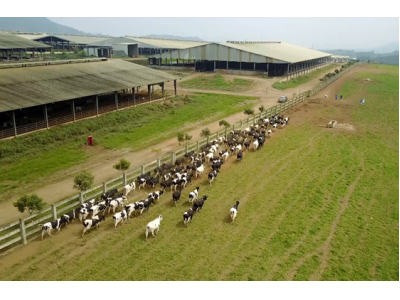Agricultural Investment: Right but Ineffective

The “gain in output, loss in price” lesson is a bitter disheartening experience for Vietnamese farmers.
Vietnam's agricultural sector is facing numerous difficulties and challenges while industrial growth showed signs of slowing down. Smart agricultural development is sluggish due to shortcomings and barriers to land, market and capital. At present, Vietnam has three hi-tech agricultural zones approved by the Prime Minister in Hau Giang, Phu Yen and Bac Lieu provinces. The Ministry of Agriculture and Rural Development granted certificates to 26 hi- tech agricultural companies. In addition, three provinces built plans for construction of hi-tech agricultural zones, namely Thai Nguyen, Thanh Hoa and Lam Dong.
Dr Doan Cong Khanh (Research Institute for Trade) said that agricultural restructuring has not touched enterprises and entrepreneurs. Vietnam’s care for agricultural development and priority for farmers are right but ineffective approaches. Although there are many incentive policies, few companies are interested in agricultural investment. Meanwhile, agriculture will not be able to be modernised if there is no business. Agricultural companies were insignificant by the end of 2015.
According to statistics, only 1.01 per cent of established companies were engaged in agriculture in 2014, mostly small entities. Up to 55 per cent of companies had less than VND5 billion of registered capital. The impact of loosened agricultural and rural policies seems to reach the peak, even some becoming barriers to development. There are many agricultural and rural investment incentive policies but they are ineffective.
According to Mr Khanh, agricultural and rural development programmes are affecting a relatively narrow scope. With their market knowledge and management skills, only enterprises can pull up agricultural value chains but they are not placed at the heart of policies.
Professor Hoang Ngoc Hoa, former director of the Institute of Economics and Development under Ho Chi Minh National Academy of Politics (HCMA), said that good-performing agricultural companies account for a tiny share, only 1,500 agricultural, forestry and fishery companies out of over 40,000 companies active in rural areas.
Mr Nguyen Hoang Anh, General Director of Nam Mien Trung Aquaculture Investment Co., Ltd., said, companies lack scientific, rational approaches to market development. Producers do not base on market demands and tastes for product development but they typically make and sell what they have.
He recommended a solution that takes the market as a measure for policy development. Therefore, the government is working with businesses to draft policies on market in order to fully utilise competitive advantages of Vietnam.
Suggesting a proposal that the private sector is the locomotive of agricultural development, Mr Nguyen Tri Ngoc, Secretary General of the Agriculture and Rural Development Association, underlined the need for a land accumulation policy that will enable the formation of a true market with the land market for enterprises to capture opportunities of development and production expansion. Secondly, the Government directs the construction of an agricultural start-up support system, especially leading agricultural businesses such as agricultural insurers. Thirdly, it is necessary to have a preferential credit package for enterprises to invest in agriculture.
Mr Le Van Tam, President of the Board of Directors of Lam Son Sugar Joint Stock Corporation, said, agricultural restructuring necessarily focuses on high-tech agriculture development. Accordingly, reshuffling agricultural production towards cross-sector cooperation, building and developing agricultural enterprises, and encouraging agricultural investment are important contents. Hence, high-tech agricultural production renovation becomes more and more urgent and must be considered the core of agricultural development.
According to updated data as of March 2017, Vietnam had 15 high-tech agricultural projects supported by the government. The State fund to reciprocal capital is VND156.3 billion to VND284.5 billion.
Inadequate statistics from the Ministry of Agriculture and Rural Development showed that, in eight months (from June 2016 to February 2017), companies invested VND21.2 trillion in 25 high-tech agricultural production projects.
Although some tasks under the Hi-tech Agriculture Development Programme have been implemented, most of projects have small and medium scale, resulting in inconsiderable impacts on society and industry. Some high-tech applied agricultural zones established under the Prime Minister’s decisions are being sluggishly carried out because of capital shortage, unfavourable location or scale among others.
Dr Kieu Minh Luc, Deputy General Director of CP Vietnam Company, said that it is necessary to regulate breeding production and market to address the current oversupply and to have market planning for specific products.
It is necessary to position two main types of livestock products: Common products and specialty product to provide animal protein for consumers. Vietnam needs to continue to transform from smallholding production to large-scaled industrial production while imposing technical barriers to cheap frozen meat.
Có thể bạn quan tâm
Phần mềm

Phối trộn thức ăn chăn nuôi

Pha dung dịch thủy canh

Định mức cho tôm ăn

Phối trộn phân bón NPK

Xác định tỷ lệ tôm sống

Chuyển đổi đơn vị phân bón

Xác định công suất sục khí

Chuyển đổi đơn vị tôm

Tính diện tích nhà kính

Tính thể tích ao hồ



 General Department of Vietnam Customs handles obstacles of…
General Department of Vietnam Customs handles obstacles of…  How Aquaculture and Agriculture Can Work in Harmony
How Aquaculture and Agriculture Can Work in Harmony